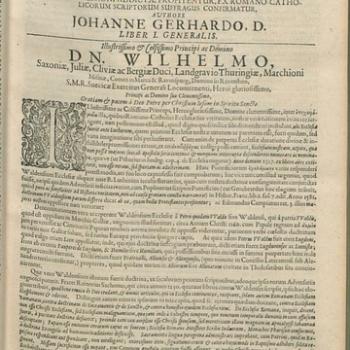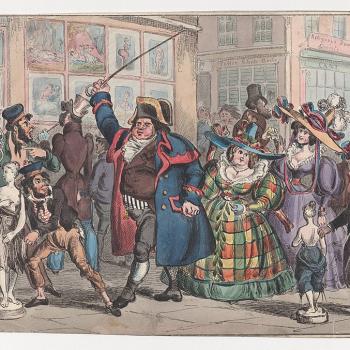Despite its lachrymose title, Terryl and Fiona Givens's new book, The God Who Weeps, is upbeat and energetic. Published in 2012 by Ensign Peak, this volume is unique for its interesting husband-and-wife joint authorship, its elevated-but-not-academic tone, and its ambitious project: to "make sense" of human experience with Mormon ideas.
The book treats five main themes, lucidly sequenced by chapter: the nature of God, especially God's ontological unity with and empathetic vulnerability to humankind (though to their credit the authors wisely avoid words like "ontological"); the nature of humankind, especially our uncreated, co-eternal identities; the destiny of humankind, underlining a robust notion of free will and eternal self-improvement through choice and repentance; near-universal salvation, emphasizing the mercy of God and the affective power of the atonement to transform our natures through Christ's empathetic example; and family and community, especially the notion of exaltation as the continuation of voluntary, loving relationships.
It's an extraordinarily elegant and economical ordering of Mormon tenets, or of a certain subset of Mormon tenets. As in any such exercise, it's notable as much for what it leaves out as for what it incorporates: there is virtually no mention of authority, obedience, institution, or religious practice. The book's subtitle conveys the rationale for these omissions: the book sets out to show "how Mormonism makes sense of life," not how it actually structures and orders those lives. That is, the book crystallizes a Mormon worldview, but it makes no attempt to examine how that worldview is disseminated and reproduced. This is a legitimate authorial choice, and a savvy one, as it allows the authors to focus on those elements of Mormonism most resonant in contemporary Western culture—individualism and choice—while setting aside the thornier elements of authoritarianism and hierarchy.
The authors' method is as interesting as its content. The book's intended audience is thoughtful and educated, but not academic. With the exception of two or three important and closely argued passages—a novel treatment of the way in which pre-mortal existence underwrites human agency and a harmonizing of the apparent contradiction between sinful human nature and universal salvation—the bulk of the book is not structured dialectically, as an argument proceeding stepwise through syllogism. The authors instead substitute the "reasonable" for reason itself: that is, they rely on shared common sense, shared moral intuitions, and a common conscience to build consensus with their readers. In a typical example, the authors write of God's nature that "It would make sense to look for a God who inhabits that true north toward which our innate moral compass points us" (19). These notions of common sense and conscience are left implicit and untheorized, an omission that puzzled me. It is not at all clear to me what an "innate moral compass" is, whether I have one, and whether my true north is really true or merely in the neighborhood where Santa lives. It seems to me too contested and too contingent a notion to do the rhetorical work the authors require of it.
What is clearly beyond contest is the authors' breathtaking erudition and command of the Western canon. On every page, in every paragraph, in nearly every sentence the authors seem to find a perfectly pitched quotation to elucidate or extend their point. The depth and breadth of their knowledge of world literature, theology, philosophy, and art, from Aristophanes and Julian of Norwich to lesser-known figures like Edward Beecher and Sarah Edwards, is astonishing. Givenses, how do you do it? Please reveal your methods for finding and organizing quotations. I stand in awe.
For a particular instance of the book's method and sensibility, take its engagement with the notion of individualism, a leitmotif that unites the five chapters under a single arc. The sovereign, separate self, freely thinking and willing, is the book's primary lens for "making sense of life," as the subtitle promises to do. For the Givenses, the self is Paul's dark glassy view on the cosmos: "In other words, we are the mystery yet to be revealed. It is our own identity that we must struggle to discern, before we can rightly perceive our place in the cosmos and our relation to the Divine" (38). The self, with its appetites and intuitions, becomes the best evidence for God's existence:
Every craving that we experience finds a suitable object that satisfies and fulfills that longing. Our body hungers; and there is food. We thirst; and there is water. We are born brimming with curiosity; and there is a world to explore and the sensory equipment with which to do so. (12)





